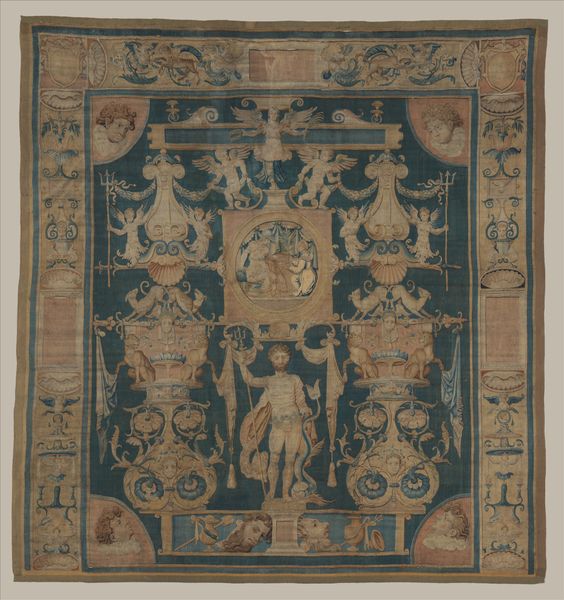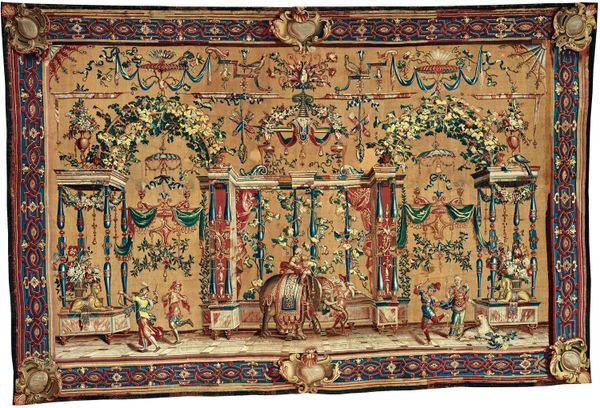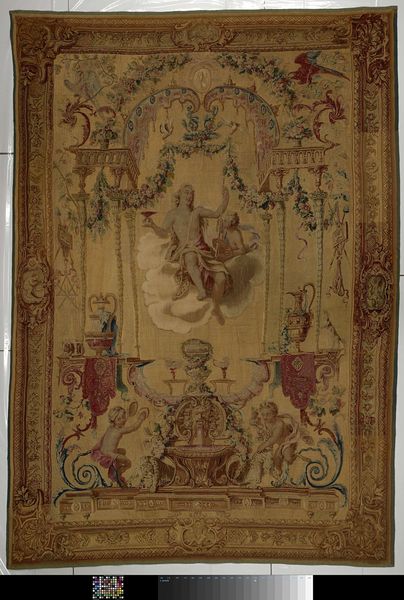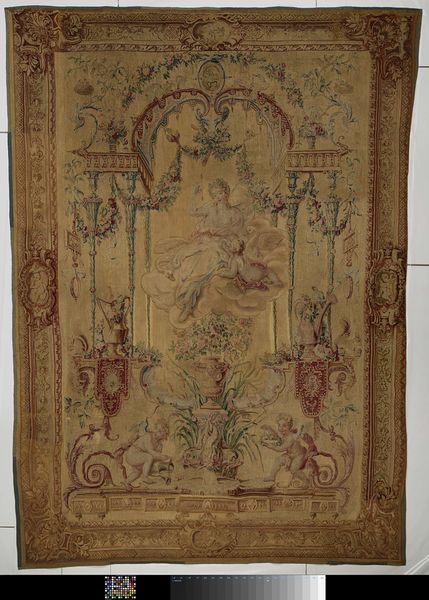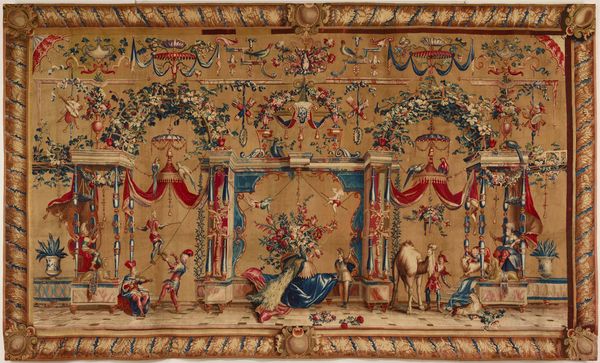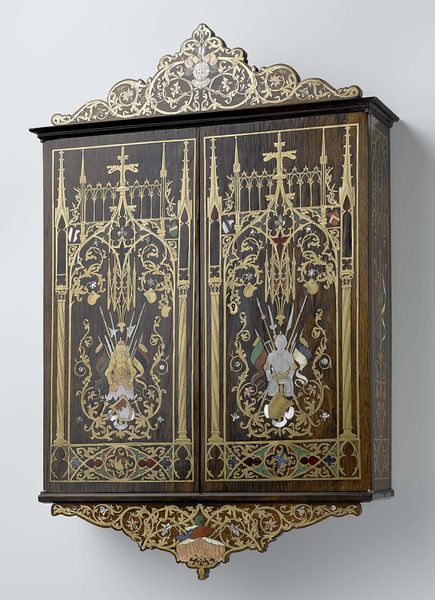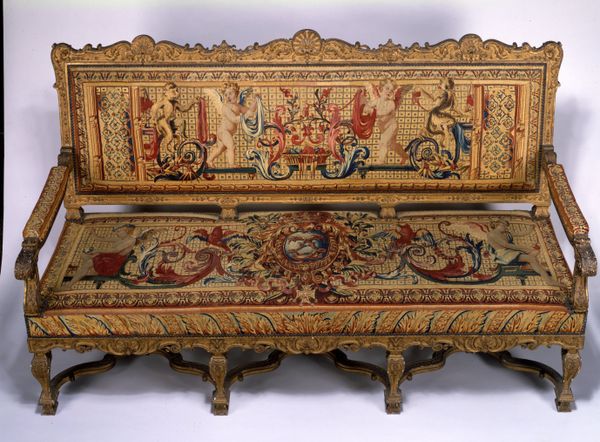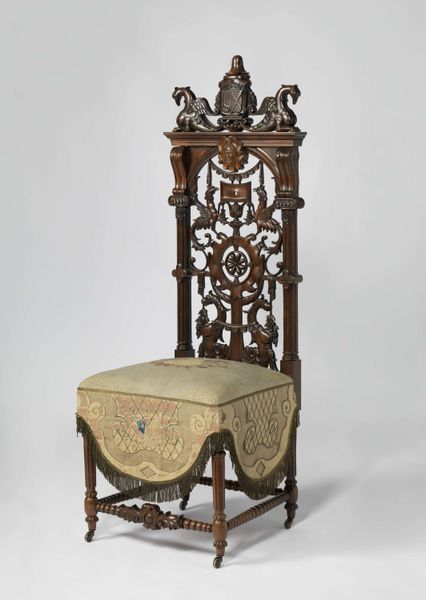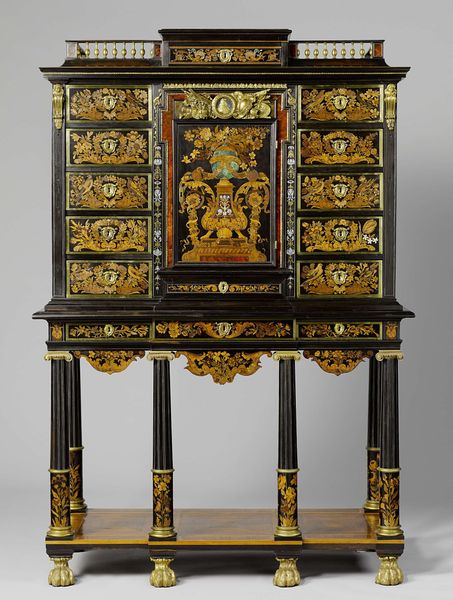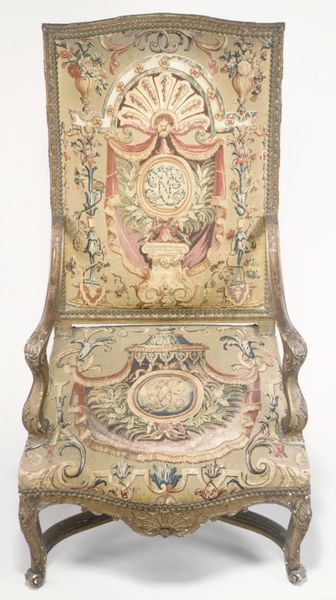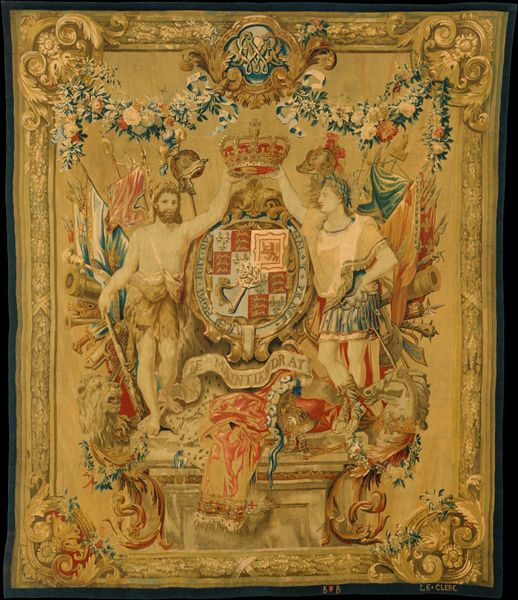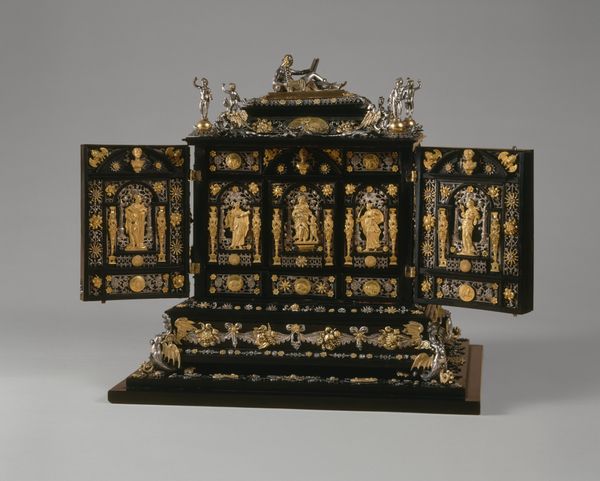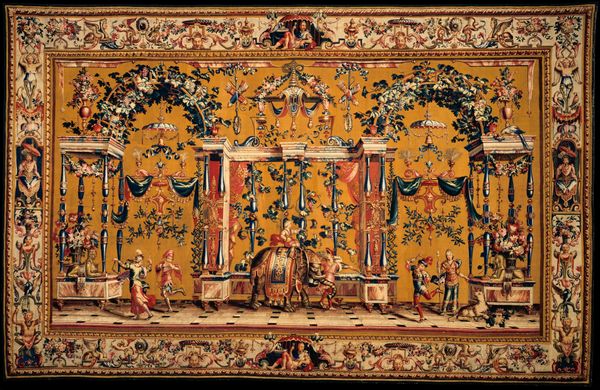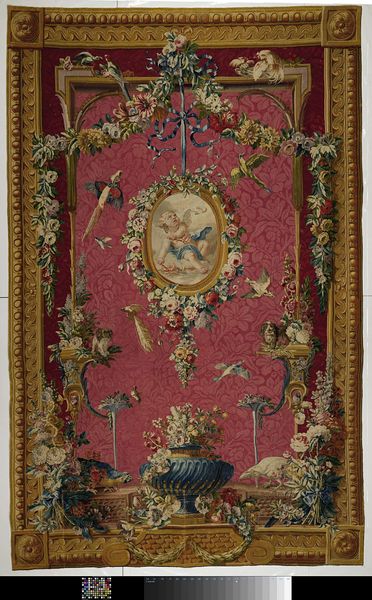
carving, textile, wood
#
wood texture
#
carving
#
sculpture
#
textile
#
mannerism
#
figuration
#
11_renaissance
#
wooden texture
#
wood
#
history-painting
Dimensions: height 345 cm, width 425 cm
Copyright: Rijks Museum: Open Domain
This impressive tapestry, featuring Hercules, was woven from wool and silk, likely in the 16th century. The tapestry’s coloration is remarkable. This was achieved through careful dyeing, an alchemical process that transformed raw wool into a spectrum of hues. The weaver then painstakingly interwove these threads to create a dense, pictorial surface. Note the complex arrangement of classical motifs – columns, vases, and figures. These elements would have been carefully planned and cartooned before the weaving began. Weaving was an essential industry in the early modern period, a source of both immense wealth and social inequity. Such a large-scale, finely detailed tapestry like this one represented a significant investment of time and skill. It was also a display of power, intended to impress and awe. Consider the sheer labor involved in producing this textile, and its original context. It truly collapses distinctions between art, craft, and the social fabric of its time.
Comments
No comments
Be the first to comment and join the conversation on the ultimate creative platform.
